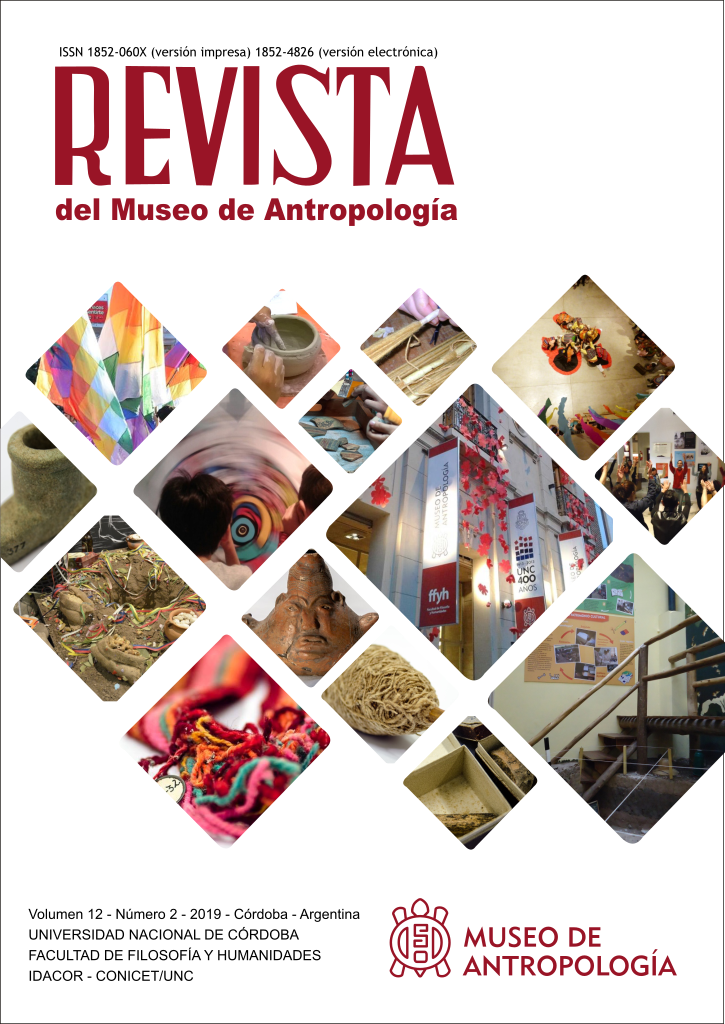Decision, rupture, option: an experience of the Museum’s social role in favor of gender equity
DOI:
https://doi.org/10.31048/1852.4826.v12.n2.21000Keywords:
Museum Education, Gender, Equity, TomorrowsAbstract
This article is the collection of theoretical reflections that resulted from the Project “10 Meninas na Construção dos Amanhãs”, a partnership of the Population Fund of the United Nations with the Museum of Tomorrow, located in the city of Rio de Janeiro - Brazil. The Project consisted of educational actions carried out with 10-year-old girls living in different places of the city to discuss fundamentally their conditions. Therefore, during the meetings, actions were proposed that aimed to discuss the stereotypes related to the image of women, the wage differences between genders and present the trajectory of important women in history. In this Project we also held the Seminar “10 - Meninas na Construção dos Amanhãs”, which was attended by experts and representatives of the Population Fund of the United Nations. If the Museum presents itself as a body politic in favour of equity, the events that took place here sought to move comfort zones. In this sense, these events were constituted as actions that intend to advance in the direction of a more just society for believing in gender equity and social inclusion as premises and ideological construct.
Downloads
References
Adichie, ChimamandaNgozi. Sejamos todos feministas. São Paulo: Companhia das Letras, 2015.
Adichie, Como educar crianças feministas. São Paulo: Companhia das Letras, 2017.
Andrade, N. M. S. Por escolas perambulantes In: Sonhos de Escolas: conversas com Kurosawa.1 ed.Petrópolis : D P et Alii,2014, v.1, p. 298-313
Freire, Paulo. Pedagogia da autonomia: saberes necessários à prática educativa. 43. ed., São Paulo: Paz e Terra, 2011.
Mörsch, Carmen. At a Crossroads of Four Discourses – documenta 12 Gallery Education in betweenAffirmation, Reproduction, Deconstruction, andTransformation. In: Mörsch, Carmen (Org.). Vol. 2. documenta 12 educationII .between Criticam Practiceand Visitor Services Results of a Research Project. Institute of Arte Education /Diaphanes, Zurich, Berlin, 2009, pp. 9-31. (N. da T.)
Pedro, J; Pinsky, C. (orgs). Nova História das Mulheres no Brasil. São Paulo: Editora Contexto, 2012.
Pedro, Joana Maria. Traduzindo o debate: o uso da categoria gênero na pesquisa histórica. História, São Paulo, v. 24, n.1, pp.77-98, 2005.
Perrot, Michelle. As mulheres ou os silêncios da história. Bauru: EDUSC, 2005.
Sandy, Danielly. Museu e Sociedade: uma relação interdisciplinar. In: Anais do VIII Fórum de Pesquisa Científica em Arte. Curitiba: ArtEmbap, 2011. ISSN 1809-2616.
Scott, Joan. Gênero: uma categoria útil para análise histórica. Educação e Realidade, Porto Alegre, 16(2), jul/dez., pp.5-22, 1990.
Vaquinhas, Irene. Museus do feminino, museologia de género e o contributo da história », MIDAS [Online], 3 | 2014, posto online no dia 08 Junho 2014, consultado no dia 10 Janeiro 2017. URL : http:// midas.revues.org/603 ; DOI : 10.4000/midas.603
Equipe Pesquisa Salarial da Catho Online - As diferenças salariais entre Homens e Mulheres (2007) Disponível em:
https://www.catho.com.br/salario/action//artigos/As_diferencas_salariais_entre_Homens_e_Mulheres.php
Downloads
Published
Issue
Section
License
Those authors who have publications with this Journalaccept the following terms:
a. Authors will retain their copyrights and guarantee the journal the right of first publication of their work, which will be simultaneously subject to the Creative Commons Attribution License (Licencia de reconocimiento de Creative Commons) that allows third parties to share the work as long as its author and his first publication in this journal.
b. Authors may adopt other non-exclusive licensing agreements for the distribution of the version of the published work (eg, deposit it in an institutional electronic file or publish it in a monographic volume) provided that the initial publication in this journal is indicated.
c. Authors are allowed and recommended to disseminate their work on the Internet (eg in institutional telematic archives or on their website) before and during the submission process, which can lead to interesting exchanges and increase citations of the published work. (See The Effect of Open Access - El efecto del acceso abierto)












